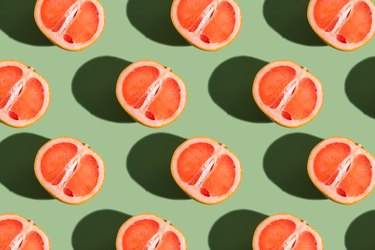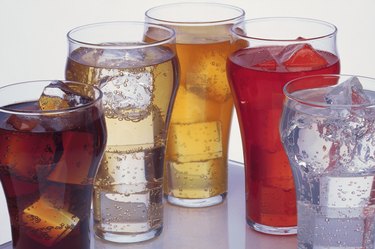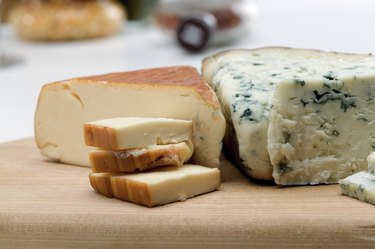
An overgrowth of the fungus Candida albicans causes a condition know as candidiasis, also called a yeast infection. Yeast infections often affect dark, moist areas of your body such as your mouth, genital area, intestines, urinary tract or skin folds. While no scientific evidence proves that dietary changes help improve yeast infections, avoiding certain foods may help enhance your body's ability to control the overgrowth of Candida albicans.
Simple Carbohydrates
Video of the Day

Simple carbohydrates such as sugar, refined grains, fructose and glucose provide yeast infections with a source of food. The lack of nutrients in many simple carbohydrate foods also limits your intake of vitamins and minerals your immune system needs to fight candidiasis, advises Nicole Kuhl, the director of nutrition and full-time health coach at Lifespan Medicine in Santa Monica, California. Avoid simple sugars by eliminating most fruits, fruit juices, sodas, milk, alcohol, candy, pre-packaged meals and snacks, white breads, regular pasta, syrups, table sugar and white rice from your diet. Some high-carbohydrate vegetables such as peas, squash, lima beans and potatoes also provide your body with simple carbohydrates.
Video of the Day
Yeast

Foods made with yeast or containing yeast may also promote yeast growth. The University of Maryland Medical Center suggests that avoiding alcohol, peanuts and most cheeses may help control a yeast infection. Other foods sources of yeast include vinegar, bread, rolls, soft pretzels, pizza dough, pastries and bagels.
Allergens

Foods that your body is sensitive to may also worsen yeast infections. Common symptoms of food sensitivity include hives, itching, indigestion, diarrhea, stomach cramps, nausea, swelling of the face, metallic taste in the mouth, breathing difficulty, nasal congestion, lightheadedness or fainting. If you have even one of these symptoms within two hours of consuming a food, you may have a sensitivity to it. Avoid foods that cause any of these allergic reaction symptoms. Food sensitivities cause an inflammatory response, which stresses the immune system and decreases your immune response to your yeast infection, Kuhl advises. Common foods sensitivities include wheat, shellfish, tree nuts, peanuts, strawberries, tomatoes, fish, dairy and soy.
Saturated Fats

Saturated fats may also increase the inflammatory response produced by your body, Kuhl warns. Eliminate as many saturated fats from your diet as possible, such as dairy, organ meat, processed meats, butter, cheese, full-fat dairy products and most meats. Do not eliminate all fats from your diet though. Sources of omega-3 and omega-6 fatty acids such as fish and nuts actually reduce inflammation and allow your immune system to focus on fighting the growth of yeast.
Considerations

Dietary changes alone may not improve your yeast infection. Yeast infections often require special anti-fungal medications. Consult your doctor about medications you may need in addition to making dietary changes to fight your yeast infection. You may also need to adjust the frequency you take certain medications, for example, you could get yeast infections while on antibiotics.
Is this an emergency? If you are experiencing serious medical symptoms, please see the National Library of Medicine’s list of signs you need emergency medical attention or call 911.